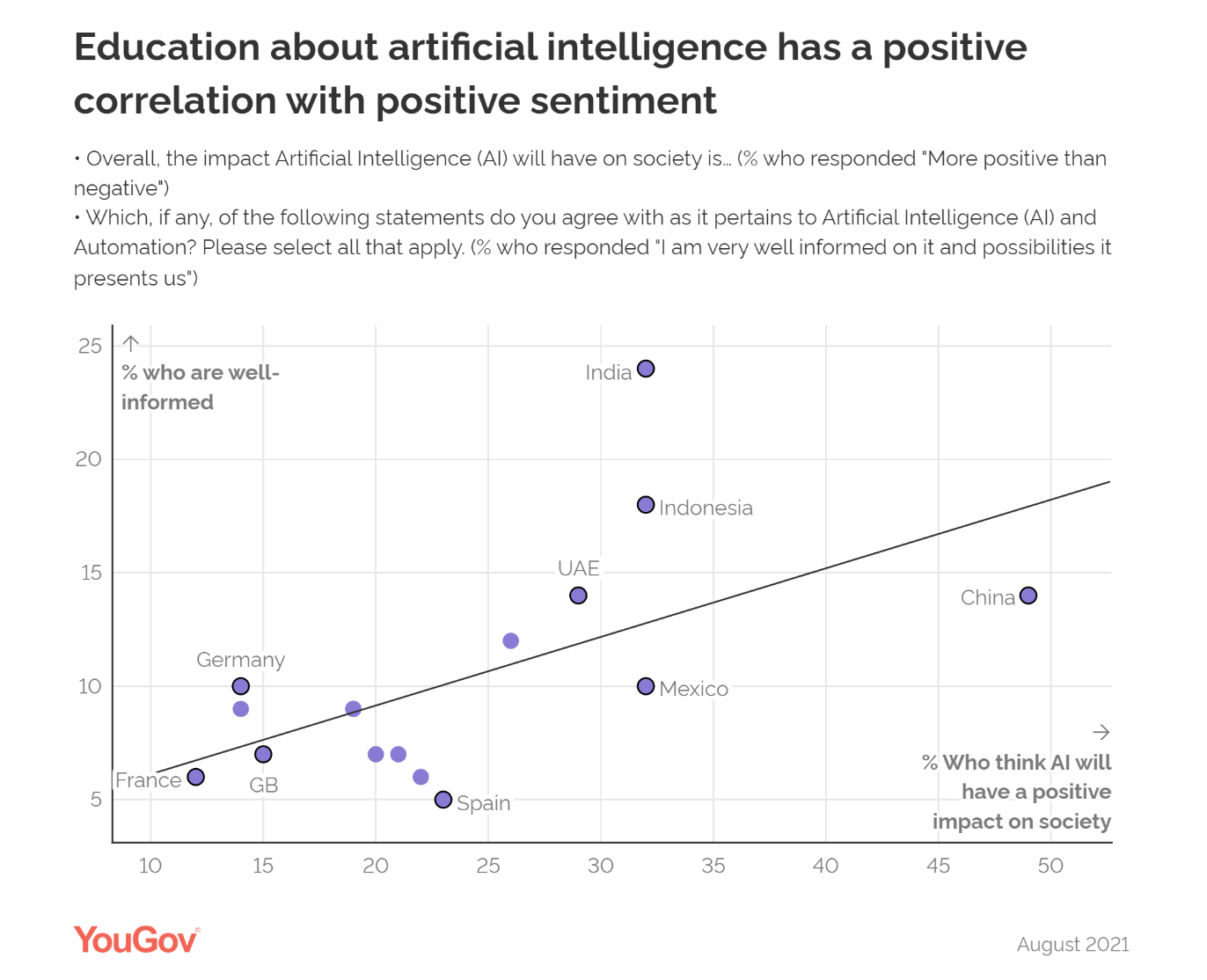Artificial intelligence (AI) is transforming a growing number of industries. For example, AI is projected to have a short and long-term impact on global productivity, equality and inclusion, environmental results, and a variety of other domains. AI's potential influence on sustainable development have been reported to have both good and negative consequences.
Artificial intelligence is going to be the future in the upcoming years. It is already been ruling our lives in the shape of small devices and gadgets we use for day to day work. As per YouGov white paper consumer feelings around AI shows there is a correlation between knowledge about AI and feeling around its benefits to society. It has been found that people with different educational backgrounds have different sentiments about artificial intelligence’s future. Some think that AI will make lives easier and better to live while others have opposite sentiments that AI might make life more difficult to live.
A favorable link exists between artificial intelligence education and positive sentiment. Countries like China, Mexico, India have positive sentiments about artificial intelligence while people from Germany, USA, and France have negative sentiments about the future of artificial intelligence. Consumers in the United Kingdom are less likely to be well-informed on AI (7 percent), to believe it will have a beneficial impact on society (15 percent), and to believe it would have a negative impact (20 percent) (33 percent ).
Only 10% of global consumers feel they are very well informed on artificial intelligence and the opportunities it brings to society. Respondents are split on whether it has a more beneficial (23%) or negative (23%) impact on society, with 40% saying it has an equal positive and negative impact and 15% saying they don't know. Both private and public institutions should work to better communicate the safety of AI and automation, as well as how it will benefit average customers.
Read next: Study Explores How Sleep Technology Impacts Sleep Habits and Health
Artificial intelligence is going to be the future in the upcoming years. It is already been ruling our lives in the shape of small devices and gadgets we use for day to day work. As per YouGov white paper consumer feelings around AI shows there is a correlation between knowledge about AI and feeling around its benefits to society. It has been found that people with different educational backgrounds have different sentiments about artificial intelligence’s future. Some think that AI will make lives easier and better to live while others have opposite sentiments that AI might make life more difficult to live.
A favorable link exists between artificial intelligence education and positive sentiment. Countries like China, Mexico, India have positive sentiments about artificial intelligence while people from Germany, USA, and France have negative sentiments about the future of artificial intelligence. Consumers in the United Kingdom are less likely to be well-informed on AI (7 percent), to believe it will have a beneficial impact on society (15 percent), and to believe it would have a negative impact (20 percent) (33 percent ).
Only 10% of global consumers feel they are very well informed on artificial intelligence and the opportunities it brings to society. Respondents are split on whether it has a more beneficial (23%) or negative (23%) impact on society, with 40% saying it has an equal positive and negative impact and 15% saying they don't know. Both private and public institutions should work to better communicate the safety of AI and automation, as well as how it will benefit average customers.
Read next: Study Explores How Sleep Technology Impacts Sleep Habits and Health


